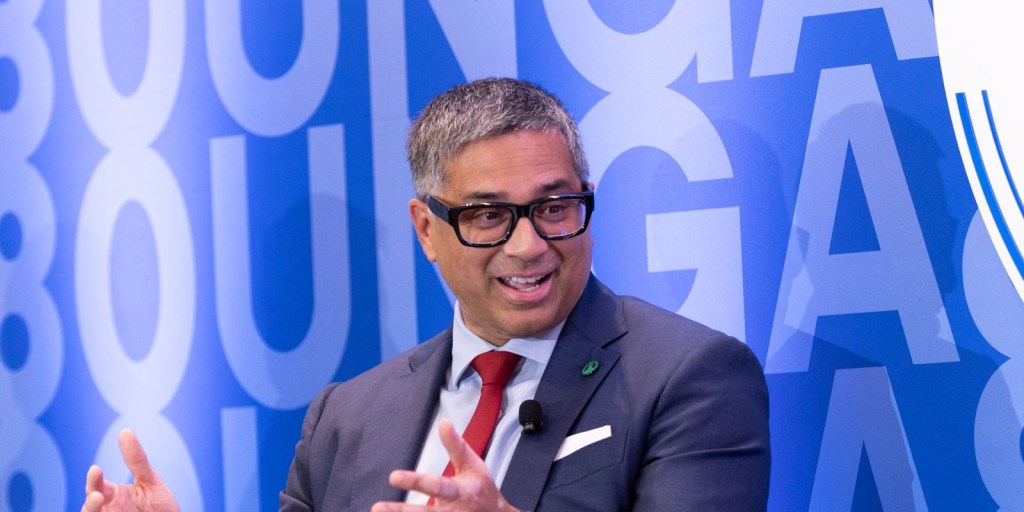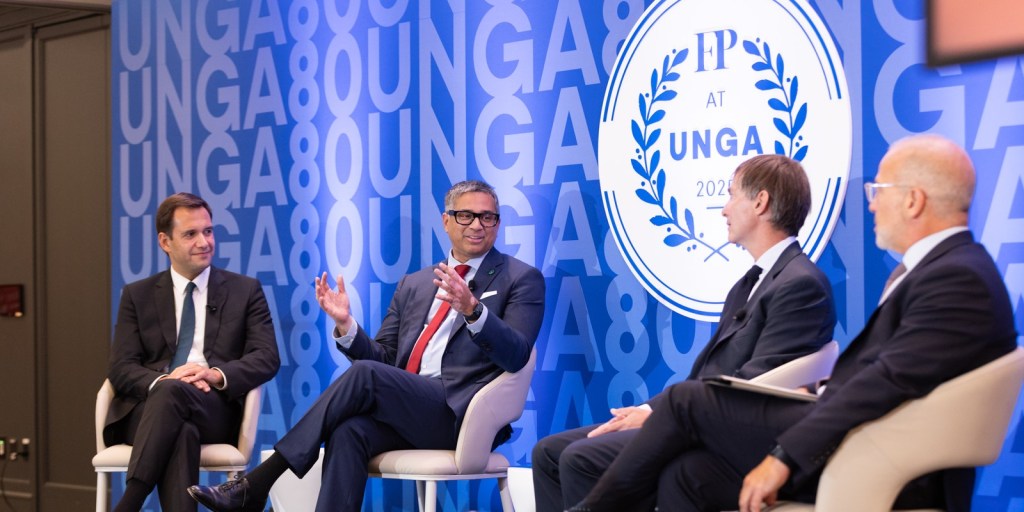Saving Lives by Breaking Silos
A Call for Integrated Care in Tackling Some of the Most Devastating Conditions

Written by: Shashank Deshpande, Chairman of the Board of Managing Directors, Boehringer Ingelheim
Tanya is living with heart disease. She is in her late 40s and lives in Australia, a country known for its wealth and advanced healthcare systems. Her disease, along with cancer, stroke and diabetes, is one of the most devastating indications.
When we met earlier this year at the 78th World Health Assembly (WHA) in Geneva, Tanya told me that she must see five different specialists and how frustrating it is to deal with conflicting treatments, duplicative tests, and how left alone she feels navigating a fragmented system. “My specialists have never spoken to each other,” she said. “It’s left up to me to manage how they treat my conditions. I would love to see them communicate and come with a coordinated approach – even just having one point of contact would make a huge difference for me personally.”
Tanya’s story is not unique. I could tell you about Vicky, who has obesity. And others. They face similar challenges, particularly those in rural areas with limited access to healthcare providers. This lack of coordination often results in delayed diagnoses, increased hospitalizations, poorer health outcomes and in many cases death.
Humanity can do better than this. We, the pharma industry, can do better. We are talking about making medicines affordable and accessible. If we start treating diseases in an interconnected way, we can save lives, as well as money along the way.
Tanya’s condition can be grouped under a medical category called cardiovascular, renal, and metabolic (CRM) conditions, which includes, in addition to Tanya’s heart failure, chronic kidney disease (CKD) and liver diseases such as MASH, also known as fatty liver. They cause over 20 million deaths annually. These conditions often co-exist and amplify one another, creating a complex web of health challenges.
CKD is often referred to as a “silent disease” and has long been overlooked. It affects approximately 1 in 10 adults worldwide, yet 9 out of 10 remain undiagnosed until reaching an advanced stage, when complications such as heart failure severely impact daily life. Many patients die from heart-related causes before reaching kidney failure. Conversely, those with hypertension or cardiovascular diseases are at higher risk of developing CKD, highlighting the need for an integrated approach that prioritizes preserving kidney health to protect the heart and vice versa.
Unfortunately, as of today CRM conditions are mostly still treated in silos. Care models often involve multiple specialists – nephrologists, cardiologists, hepatologists, endocrinologists – each focusing on their own area. This can lead to delayed diagnoses and uncoordinated treatment plans.
At Boehringer Ingelheim, we are working with partners to fix this. Earlier this year on the sidelines of the WHA, we launched the Power of Connection Report: Strengthening health policy responses to cardiovascular, renal, and metabolic diseases. Together with a wide range of experts, we set out a series of recommendations developed to better integrate care. We brought together policymakers, patient advocates, and civil society for a critical dialogue on the importance of integrated care and the urgent need to address CRM conditions as a whole to reduce the burden of cardiovascular diseases. And we are calling on governments worldwide to join us.

Improving the lives of millions
We stand at a historic moment of opportunity. The WHO Kidney Health Resolution, adopted at the World Health Assembly (WHA) earlier this year, calls for integrated CKD screening and management that, if realized, could improve the lives of millions of people at risk.
The draft Political Declaration presented at the UN High Level Meeting on Non-Communicable Diseases (NCDs) and Mental Health also has the potential to shape the global healthcare landscape for years to come. While the Political Declaration is yet to be finalized, we are making a strong case that the final text recognizes the full impact of CKD, including the importance of screening, diagnosis, and treatment, and that it addresses the interconnected nature of CRM conditions and the need for more holistic patient care.
But much like hope, resolutions mean little without commensurate commitment and action. This is why beyond securing these commitments, our focus is on turning them into meaningful progress on the ground – ensuring that patients truly benefit from integrated care, rather than seeing plans remain only on paper, while also helping to ease the financial burden on healthcare systems worldwide.
We have learned that early detection of diabetes can allow for more effective intervention and prevent a more serious indication such as CKD. That is why we have implemented projects that provide CKD screenings to detect health risks earlier. In Japan, we have trained primary care providers to better understand kidney health, equipping them with the tools to identify and manage risks sooner.
Similarly, in Great Britain, we are collaborating with the NHS to offer screenings for diabetes patients, underlining the interconnected nature of diabetes and kidney health and the importance of early detection to prevent CKD progression and cardiovascular complications. These efforts offer just a glimpse of what is possible when we prioritize integrated care and work together to deliver better outcomes for patients.
At the United Nations General Assembly this week, I made a plea for an urgent adoption of interconnected health policies that prioritize outcome-focused care and align health systems around the needs of patients – particularly those living with CRM conditions. I also spoke to organizations and offered our help and partnership to implement these policies.
We need a healthcare environment that puts the entire patient – not single conditions – at the center. This means breaking down silos across funding, clinical guidelines, and care delivery models. Only then can we truly tackle this global challenge and deliver on the hopes of patients like Tanya and Vicky.
